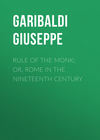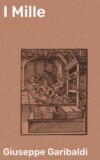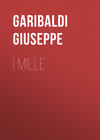Read the book: «The Life of General Garibaldi», page 20
"I would reserve to myself full liberty of action relative to Sicily in the event of the King of Naples being unable to accept this condition. General, follow my advice, and you will see that it is useful to Italy, whose power of augmenting her merits you would facilitate by showing to Europe that even as she knows how to conquer, so does she know how to make a good use of her victory."
Garibaldi replied to the king as follows:
Sire: Your majesty knows the high esteem and the devotion which I feel toward your majesty; but such is the present state of things in Italy, that, at the present moment, I cannot obey your majesty's injunctions, much as I should like it. I am called for and urged on by the people of Naples. I have tried in vain, with what influence I had, to restrain them, feeling, as I do, that a more favorable moment would be desirable. But if I should now hesitate, I should endanger the cause of Italy, and not fulfill my duty as an Italian. May your majesty, therefore, permit me this time not to obey! As soon as I shall have done with the task imposed upon me by the wishes of the people, who groan under the tyranny of the Neapolitan Bourbon, I shall lay down my sword at your majesty's feet, and shall obey your majesty for the remainder of my lifetime.
"Garibaldi."
The letter is dated Milazzo, the 27th of July.
CHAPTER XII
"And with such care his busy work he plied,
That to naught else his acting thoughts he bent.
In young Rinaldo fierce desires he spied,
And noble heart of rest impatient,
To wealth or sov'reign power he naught applied
His wits, but all to virtue excellent."
Fairfax's Tasso.
GARIBALDI'S POSITION – A PAUSE IN HOSTILITIES – A PERIOD OF PREPARATION – PUBLIC ANXIETY – THE SICILIAN FORTRESSES – CATANIA – MILAZZO – BOATS, MEN AND ARMS COLLECTED AT FARO – LANDING ATTEMPTED AT SCYLLA – A SMALL BODY SUCCEED
Garibaldi had now been forbidden by the king to attempt any further conquests, and warned not to attempt to dethrone the King of Naples; and he had declared that he should do both. From that moment Victor Emanuel was virtually proclaimed "King of Italy," in spite of his own will and word. What induced Victor to write that letter may easily be imagined; what induced his prime minister to dictate it, will probably be always a matter of conjecture. Garibaldi's reply, and the measures which he subsequently adopted, with the results to which they led, will ever stand on record, where they can be read by the present and succeeding generations; and the world will form their own opinions of his character and capacity, without the aid of many comments or explanations.
Much was said and conjectured respecting the dissension which had existed before this time, between Garibaldi and Farina, a particular friend of Count Cavour. Garibaldi had appointed Farina counsellor at Palermo, and afterward dismissed him. It appears, even from Farina's own statement, that it did not arise from any disposition in Garibaldi to establish a republic, or otherwise to prevent the final annexation of Sicily to the kingdom of Sardinia, but was merely to postpone it for a time which he thought more favorable. It appears from other evidence, that Farina wished to have severe measures taken against some of the Republicans, but that Garibaldi rejected the proposal with noble scorn; and to prevent his further interference, banished him and two others from Sicily, by the following decree:
"'Signor La Farina, Grasselli and Toti, are affiliated to the police of the Continent. The three were expelled for having conspired against order. The government, which watches over public tranquillity, could not tolerate the presence of such individuals.'
"The 'Opinione National' of Turin, stated that Farina had full power from the Sardinian government to assume the title of royal commissioner, as soon as annexation was declared. Garibaldi, while advocating annexation, thought it advisable that his dictatorship should continue till the whole island was subjected, and finding that the presence of Farina was detrimental to the cause, he ordered him off."
La Farina afterward published the following explanation:
"The causes of my difference with General Garibaldi were as follow: I believed, and still believe, that the only salvation for Sicily is immediate annexation to the constitutional kingdom of Victor Emanuel, the most ardent wish of all the Sicilians, already manifested by the chiefs of more than three hundred municipal bodies. General Garibaldi believed that the annexation should be postponed till the liberation of all Italy, including Venetia and Rome, had been effected. I believed that it was a great act of imprudence to confide a share of authority and of the public forces to unpopular ministers, etc."
There was now a general suspension of hostilities. The entire island of Sicily was quiet, and none of the king's troops remained, except in a few of the fortresses. The circumstances under which some of these had been captured, or been forced to cease resistance, are interesting, but with the exception of Palermo, they have not been given for want of room.
The strait between Sicily and Calabria has been invested with peculiar interest to readers of history from early ages. The rocks and quicksands of Scylla and Charybdis, with the fabulous sirens of which we read in Virgil in our youth, give us impressions which are never lost. But there are more modern associations with that arm of the sea and its shores, of more real importance in the view of persons acquainted with them. American ships have long visited Palermo, Messina, Catania, and some of the other ports of Sicily, and oranges are brought to us from that fruitful island, many of which grow on the opposite coast of Calabria, or Magna Grecia, as it was formerly called. Hills arise from near the water, and mountains appear behind them, where scenes of rocky barrenness are intermingled with valleys of verdure and fertility, inhabited by a population in a simple state of society, the descendants of ancient Greeks, mingled with races which at successive periods came in from different countries. These had been for ages subject to the degrading influences of Romish spiritual rule, and of the despots of various countries, especially those of Spain and the Bourbons. But the seeds of intelligence have been assiduously sown and cherished of late years by the patriotic societies of Italy, who by their cautious, yet often daring and hazardous efforts, have long since brought many of the poor and rude, but brave and faithful Calabrians into the band of Italian unity. The events of late years had proved that the people of that part of the peninsula were to some extent connected with the great union; but the approach of Garibaldi and his reception have since shown that the influences so long and so secretly at work had not been justly appreciated. There was no considerable insurrection in Calabria during the conquest of Sicily, and it might have been presumed, from the general quietness of the population, that they were unable or unwilling to join with the patriots against the government of the King of Naples. Some practised observers of Italian affairs, however, regarded that general tranquillity as the best evidence of a general concert, and looked for a general rising of the people when the hour should arrive, and the signal should be given. Garibaldi, in the whole course of his proceedings, acted as if he had information not known to others; and a review of events, since they have passed, and are now fresh in our memory, is calculated to confirm us in this opinion.
In the long and anxious suspense which occurred before any movement was made against Calabria, questions were asked, how the flotilla of boats, which Garibaldi was collecting on the coast of Sicily, could be risked across the strait without a single ship of war to convoy them, and with only two small steamers and one larger one to tow them, while a squadron of the king's steamers was cruising between the shores, and the landing-place was strongly defended by three forts, with heavy cannon, and the whole Calabrian coast was occupied by royal troops. The currents, so terrible to mariners in ancient times, are still violent and irregular.
It was natural to ask, What is coming? What is about to happen? Are the apprehensions of Victor to be realized? Has the king a clearer sight than his gallant precursor, who has hitherto proved his prudence an equal match with his valor? Is this famous strait to prove its fatal character, so long ago recorded in fable; and is this passage then, so dreadful to mariners, to be the destruction of our noble sailor? Will he pass safely between Scylla and Charybdis, or meet his end on one or the other? On which and how will he be wrecked; and by what unfortunate circumstances? Not far distant from this spot, on a point on the coast of Calabria, the two Bandieras, sons of an Austrian admiral, but true Italian patriots, were decoyed to their death, by means of letters violated in the British postoffice. Has Garibaldi been made a dupe, by any artifice; and has Victor been apprised of danger? Has Louis Napoleon once more changed his policy, and, after favoring Italy in her "latest victories," as Garibaldi recently acknowledged, has he prepared, in consistency with his conduct in 1849, a scheme for something on the opposite side?
These, and many other questions, naturally disturbed the minds of the friends of Italy, while standing in reality or in fancy on the shore of Sicily, and looking in vain for any sign of the fate which awaited him on the other coast? But, when we turned, even in imagination, to observe Garibaldi, there was, as ever, something to dispel apprehension, and to encourage the highest hopes; for, as that patriot priest-poet, Dall'Ongaro wrote:
"O, well you might say that a saint was his mother,
For there a mild brilliancy beams in his eyes,
Which sure was sent down from Paradise."
But on the morning of the 8th of August, Garibaldi began to collect his troops near Faro, which amounted to 15,000 or 18,000 men, without counting the garrison of Messina. The Point of Faro had the appearance of a vast fortified camp, being covered with cannon of all sizes, from mountain howitzers to English 68-pounders, ready to be embarked in the three steamers, which were under steam; while 300 boats were drawn up ready to receive Garibaldi's troops.
About midnight twenty-five or thirty boats sailed from the coast of Sicily. They were going to attempt a first landing. In three quarters of an hour they crossed to the other side. Unfortunately the current did not permit them to keep the order of their position. Some were driven toward Faro, others swept under the forts of Scylla; some ran fast on sandbanks further south, while others again were thrown toward Pizzo. The soldiers, however, did not lose their courage at this misfortune. Two or three hundred were landed in all haste, and the flotilla returned to Faro without accident.
On the morning of the 10th a new attempt was made, under the command of an old officer of the French marine service, M. Deflotte: but scarcely had this expedition appeared on the coast, when the enemy rushed upon them from a thousand ambuscades, vineyards, gardens, ditches, and houses. A sharp firing ensued: two Garibaldians were wounded, and the expedition was compelled to return, not, however, without having vigorously responded to the fire of the Neapolitans.
On the night of the 10th and 11th, another landing was vainly attempted. The Neapolitan squadron came up nearer to Faro, and watched every movement of the Garibaldians. The day of the 11th was passed in embarking the artillery. A desperate attempt was spoken of for the next night. At seven o'clock in the evening the Garibaldian steamers began to fire up, and the troops placed themselves in readiness for embarking; but at eleven o'clock a counter-order arrived. About one o'clock in the night was heard a loud cannonade; the firing extended from the forts of Scylla to the fortifications of Pizzo. The squadron remained silent; the engagement had therefore taken place on the land.
It seemed to be evident that the forts were simultaneously attacked by the volunteers and the Calabrians. At a quarter past two the firing ceased: it recommenced after a quarter of an hour in order to cease again after a few minutes. At daybreak, a small boat, chased by a Neapolitan corvette, sought protection under the guns of Faro.
The small party destined to land first in Calabria were under Major Missori, and had been picked from the different volunteer corps. They had been ordered to land on the opposite coast between Scylla and Forte del Cavallo. It is on the extreme point of the Calabrian shore that these forts are situate, at a little distance one from the other. The castle of Scylla stands upon a rock, quite inaccessible from the seaside. Forte del Cavallo is a little further to the left of it, and its walls and fortifications slope gradually down toward the road which skirts the sea, very much like that from Nice to Genoa, which is called the Corniche Road.
On Wednesday evening, the sky so generally blue and bright in this country, was covered with dense whitish clouds, and the night, therefore, was very dark. Garibaldi, who knows how to take advantage even of the smallest incident, at once ordered Missori to sail. Major Missori, having embarked his men on board of large fishing vessels, consequently started at half-past nine o'clock from the Sicilian shore. The Neapolitan cruisers steaming up and down the straits, though numerous and powerful, did not seem to possess the eyes of Argus, and therefore the little expedition was able to land at the intended point. Before reaching the Calabrian coast, however, one of the boats parted company from the other, and sailed a little down toward Scylla Point, just where a Neapolitan battery had been erected. The men on guard in this battery gave the alarm, and the boat was fired at and one English volunteer wounded. Garibaldi had ordered Missori to endeavor to surprise the garrison of Fort Scylla, and to capture the fort. But on hearing the rattling of musketry, and the report of a gun on his left, Missori rightly thought that it would be impossible to seize Fort Scylla by surprise. He therefore hastened to make the concerted signal, informing the Dictator that he had safely landed, and he and his men ascended the rough paths into the Calabrian mountains. As for his companions in the boat which had missed its way, they returned to the Sicilian shore to relate the cause of their failure.
Menotti, Garibaldi's eldest son, arrived at night from Palermo with 800 of the volunteers of Bertani's last expedition. The Dictator had then 20,000 or 25,000 men. His army had been formed into four divisions. That of Medici was at Messina, watching the movements of the Neapolitans, who still held the citadel; the other three were partly concentrated at Faro, a brigade posted at Milazzo and Barcelona, and another, under Bixio, was sent to Bronte, in the province of Catania.
Through the evening of August 11th, fires were seen on the Calabrian mountains behind Pizzo. They were evidently signals made to Garibaldi by the Calabrian bands which had joined the expedition of Major Missori. From about half-past ten, firing was heard in the direction of Fort Scylla; but as that place is hidden from view by the land about Torre del Cavallo, nothing could be clearly distinguished except the heavy boom of artillery. The Neapolitan steamers were cruizing all night, as usual; but they did not fire, and only made signals with rockets. It is supposed that the firing was caused by an attack made by Major Missori's party on Fort Scylla.
The following proclamations appeared the next day:
ORDER OF THE DAY
"Faro, Aug. 12.
"Officers and Soldiers of the Land and Sea Forces: The General Dictator having for a short time quitted headquarters, left me the following Order:
"General Sirtori: I leave to you the command of the land and sea forces, being obliged to leave for a few days.
"G. Garibaldi.
"Officers and Soldiers: My greatest title to your confidence is the confidence which the man reposes in me who represents your noblest aspirations. I trust that you will obey me as you would obey Gen. Garibaldi.
"G. Sirtori, Chief of the Staff."
CHAPTER XIII
"Two seas and the Alps shall Italy bound,
The oppressors no more in our land shall be found
The banner of freedom we'll spread to the air,
And from Apennines rush in a chariot of fire."
Garibaldi's National Hymn.
THE UNCERTAINTY OF THE PROSPECT – APPREHENSIONS – GARIBALDI'S MYSTERIOUS DISAPPEARANCE – THE EXPEDITION PREPARED IN SARDINIA – HIS CHANGE OF PLANS – SAILS FROM GIARDINI, AND LANDS AT REGGIO
A new epoch in the war had now arrived, and one of the highest interest. What might be the results none could easily conjecture with any degree of confidence, because the grounds of calculation were known only to Garibaldi. His friends in America as well as in Europe were anxious, fearing that some great disappointment might then await him, after all his brilliant successes. He was about to land on a wild coast, lined with strong forts, garrisoned with numerous troops, and guarded by war-steamers, while not a sign could be discovered of any friends prepared to join him. He, it was to be presumed, had secret information, on which he was acting; but might not that be erroneous or deceptive? Reliance, however, was generally placed on his prudence and skill, and all waited impatiently to see whether he would succeed in this independent enterprise, undertaken against the command of his friend and king.
But, just when things appeared to be all prepared for a descent upon the Calabrian coast, new anxiety and great surprise were caused by the sudden disappearance of the chief. Garibaldi had disappeared, leaving behind him the proclamation which closes the last chapter. He had left his trusted and faithful friend Sirtori in his place; but why or whither had he gone, or when he would return, no one could even conjecture. The explanation is now easily given; for the facts were known after the reasons for concealing them had ceased. Garibaldi, it now appears, had been acting in a manner quite consistent with himself.
About the middle of August, 6,000 men were collected by Dr. Bertani, Garibaldi's agent in Genoa, for an expedition to the states of the Pope. They were sent in detachments to the little retired Golfo d'Orangio, on the eastern side of the island of Sardinia. Bertani went to Messina for orders from Garibaldi, having been urged by Farina and Major Trecchi not to complicate matters by invading the Papal territories before the question of Naples was settled. It was to Golfo d'Orangio that Garibaldi went secretly on the 12th. The "chivalrous regard" which he has been said to have for Victor Emanuel, as the head of Italian unity, seems to have induced him to consent, and the 6,000 men were ordered to Sicily. One thousand of them were therefore sent round the island of Sicily, to Taormina, with the intention of invading Calabria with the brigade Bixio, on the south coast. This was a characteristic plan of Garibaldi, when all eyes were turned to the Straits, as he is fond of making surprises, especially to attack in the rear.
Garibaldi therefore left Messina on the 18th of August, for Giardini, by land, where the troops arrived before him; and the materiel and horses were shipped at night, in the two steamers, Torino and Franklin, which had transported thither about 2,800 soldiers. These and others – 9,000 in all – were embarked in these steamers and two sail vessels, which were taken in tow. Garibaldi and his son accompanied this first brigade, which was to be followed by the second, and both were to act in combination with the expedition across the Strait.
At dawn of day the two steamers entered the harbor of Melito, without opposition, about twelve miles south of Reggio, and east of Capo dell'Armi. But, unfortunately on approaching the shore, one of them, the Torino, got aground, and efforts were made in vain to get her off. Garibaldi, seeing that the case was a serious one, said that he was needed to examine the bottom, and began to throw off his clothes, preparatory to diving. But his sailors were too quick, for ten or twelve of them leaped over the side of the vessel into the sea.
As he intended to take Reggio by surprise, he hastened on shore, and effected a landing, with three cannon, in a wonderfully short time. Knowing that almost all the enemy's troops were down at the forts on the west coast, from Scylla onward, he lost no time, expected no assistance, and gave them not time to learn of his arrival in their rear, but speedily gained the neighboring heights. A frigate and corvette in the King of Naples' service were posted on the watch exactly off the spot at which Garibaldi landed, but, wonderful to relate, they not only did not sink his ship, but opposed no serious obstacle to his disembarkation, although they fired some shots which killed a few of the Garibaldians. Four thousand insurrectionists in the Calabrias fraternized with Garibaldi almost on the moment of his landing. It was rumored also, that the defection of the army of Naples was extremely probable.
We now return to Faro, where the army was left still anxiously looking across the strait:
"Nothing was heard of Missori's expedition till it was reported in the camp that he had established himself at Aspromonte, a small village in the mountains near the Calabrian shore. But before reaching this place, he had to fight a company of Neapolitan riflemen, which was dispatched from Villa San Giovanni to stop his march. The skirmish was a sharp one, but at last Missori had the best of it, and was enabled to make his way through the mountains without much difficulty. In this affair, however, he had seven men wounded, and one was made a prisoner by the Neapolitans, as he was so severely hurt that he could not move. In spite of the remonstrances of the surgeon, who told the Neapolitan officer that the man would die if he were taken to Reggio, he was removed, and died on the road. Missori held Aspromonte, and Calabrian patriots joined him from the neighboring villages of the coast: 150 men of Villa San Giovanni, commanded by a Calabrian baron, were among the number.
"During the course of the night, other small expeditions sailed from Sicily, notwithstanding the shining moon which made the night as clear and bright as the day.
"The first of them was directed to land between Azzerello and Villa San Giovanni. The second successfully landed at Fiumara Zaccherella. The third reached Cannamiele. In all, these three expeditions did not number more than 300 men."
Few scenes in history can be found, to be compared with those which soon followed the landing of Garibaldi and his troops, in the manner and at the different points, above mentioned. His combined movements show the wisdom, as well as the ingenuity of his plans; and the results were probably more favorable even than his anticipations. While amusing the enemy with his preparations, and making his repeated essays to land on the near parts of the coast, he had suddenly got in their rear with a powerful force; and while the line of forts along the shore were expecting an attack in front, they suddenly discovered the hills behind and above them covered with Garibaldi's army. Their consternation may be imagined, and some idea may be formed, by an active fancy, of the feelings of the soldiers of freedom, as they showed themselves on the lofty heights, which they had attained unperceived, and from which they now looked down into the enemy's forts, and saw what passed, being able to distinguish minute objects and the positions and motions of the men.
Garibaldi sent a summons to the enemy, demanding an immediate surrender. A flag of truce soon appeared, proceeding from below, with a request for an armistice of a few hours, until orders could be received from the commander-in-chief. "You will never receive them," replied Garibaldi. "I have cut off all communications." "What do you require?" was the next question. "Surrender." "On what terms? May we march out with our arms?" "Certainly; and all the troops will be at liberty to return to their homes."
When the messenger returned to the fortress, there was a commotion visible – men running about to spread the news; and a moment after, a loud shout arose, of "Viva Garibaldi!" But little time was required to arrange the capitulation, and then Garibaldi descended the heights and entered the place, where he was received with acclamations, and the warmest expressions of joy. The soldiers crowded round, kissed his hands and hailed him as their friend. Thus relieved from all their apprehensions in a moment, and, instead of a scene of battle and bloodshed, of which they had expectations, and the forebodings of defeat and its consequences, they found themselves treated with the humanity and tenderness so universally displayed by their conqueror, and at liberty to leave their hard and miserable military life, and to return to their homes and families. The Calabrians, who had already joined the patriot army in great numbers, were continually pouring in from the country; and they, being in want of arms and ammunition to equip them for the ranks of the liberator, purchased those of the disbanded soldiers, who having no intention of remaining in the service of the king, were glad to sell what they no more desired to use against their brethren.
The capture of the forts was thus a scene of peaceful jubilee, and effected without shedding a drop of blood. The results of Garibaldi's proceedings now showed that he must have laid his plans and pursued his movements on information before received, and which fully justified them at every step. His progress, from that part of Calabria toward Naples, afforded equal evidence of his sagacity and of the preparations made to facilitate and secure it. The people rose in his favor wherever he came, and insurrections were made in different and some distant parts of the country, often with a boldness and success which proved extensive and well-laid combinations. To secret societies and the patriotism of the people belongs the credit of that great and almost bloodless revolution. The following brief account of proceedings in several places may serve as a specimen of the movements in the country.
"Three thousand men, assembled from Polla, Sant'Angelo, San Rufo, and a number of other places, marched into Sala, commanded by Colonel Fabrizii. There, in the presence of an enthusiastic population, the downfall of the Bourbons was declared, and the government of Victor Emanuel established, with Garibaldi as dictator, and Giovanni Matina as pro-dictator. A procès verbal of the whole affair was made, and signed by the authorities. In western Lucania, under the direction of Stefano Passaro, a committee was appointed to collect arms and ammunition, another to collect voluntary offerings, and a third to provide for public security. Three of the four districts of the province of Salerno, Campagna Vallo, and Sala, had already risen. Of the insurrection, or rather of the popular festivity in Vallo, we have these details: that on the 29th the tambour was beaten at 2 P.M., when the male population rushed in arms to the piazza of the city. They were shortly after joined by many of the youth of the neighboring communes, and, forming themselves into a column, with music at their head, they went through the streets, taking down the arms of the Bourbons and substituting those of Victor Emanuel. All the women of the place accompanied them, scattering flowers and confetti, and thus, amid tears of joy, they all marched toward Goi.
"The scene is described as having been one of marvellous enthusiasm, and it is added that not a single quarrel or theft took place. Life, order, and property were religiously respected."

















